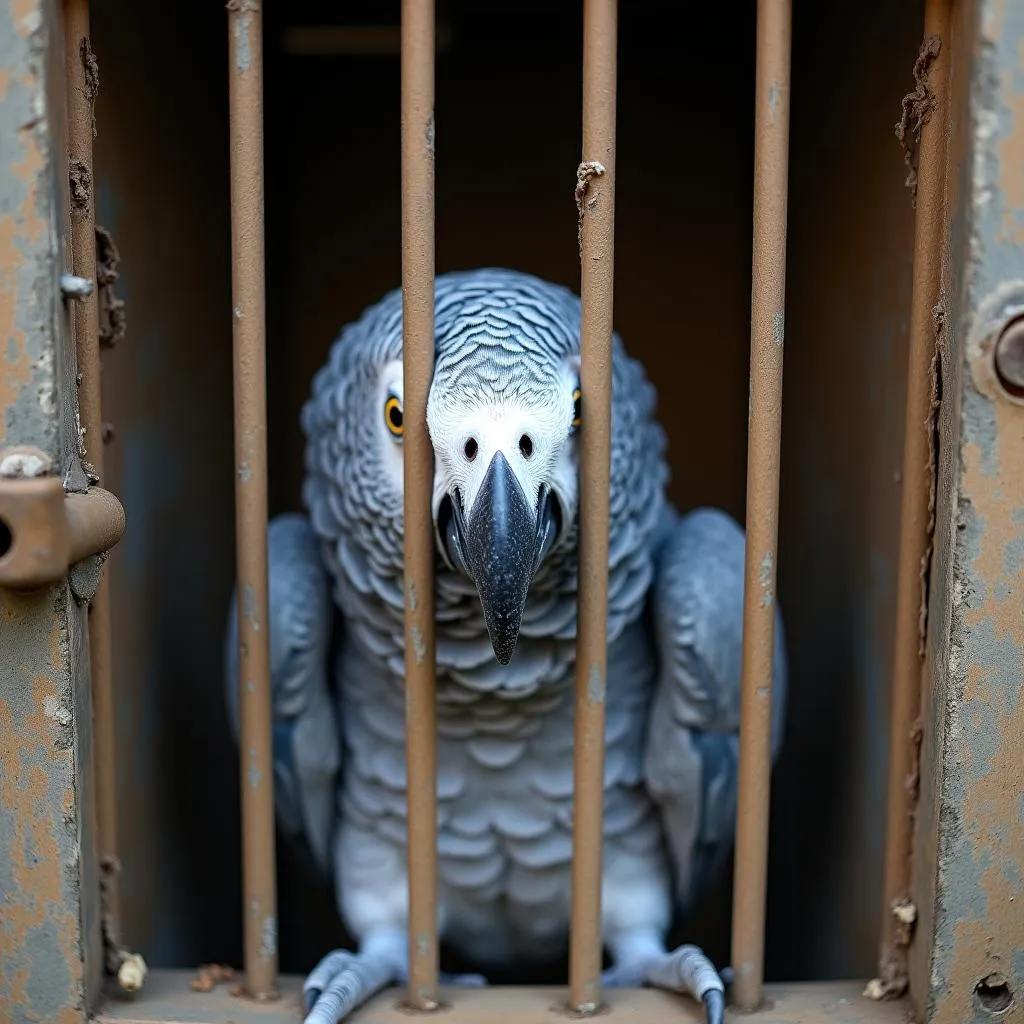The African Grey Parrot: An Endangered Icon of Intelligence
The African grey parrot, with its striking silver plumage and remarkable intelligence, is facing a grave threat: endangerment. Once a common sight across the forests of Central and West Africa, this iconic bird’s population has plummeted in recent decades, raising alarms about its future survival.
The Plight of the African Grey: Why Are They Endangered?
The decline of the African grey parrot is a complex issue, driven by a combination of factors. Habitat loss, stemming from deforestation for agriculture and logging, is a primary culprit. As forests disappear, these parrots lose their homes and sources of food.
Tragically, illegal trapping for the pet trade plays a significant role. The very intelligence that makes African greys such fascinating creatures also fuels their demand in the pet market. This insatiable desire for these birds as companions has led to unsustainable capture from the wild, decimating populations.
The Impact of the Illegal Pet Trade
The illegal pet trade operates with devastating efficiency. Trappers often capture parrots using cruel methods, leading to injuries and high mortality rates even before they reach markets. The journey itself is perilous, with many birds succumbing to stress, disease, or neglect.
 African grey parrot in a cage
African grey parrot in a cage
These parrots, ripped from their natural environment and social structures, often face a bleak existence in captivity. Deprived of the vast space, varied diet, and social interaction they need to thrive, they can suffer from physical and psychological problems.
Conservation Efforts: A Glimmer of Hope for the African Grey
Despite the challenges, there is hope for the African grey parrot. Numerous organizations and individuals are dedicated to protecting this extraordinary species. Conservation efforts focus on addressing both the immediate threat of trapping and the long-term challenge of habitat loss.
- Combating the Illegal Wildlife Trade: Organizations like the World Parrot Trust work tirelessly to combat wildlife trafficking. This includes raising awareness about the plight of the African grey, supporting law enforcement efforts to apprehend traffickers, and advocating for stronger legislation against the illegal pet trade.
- Protecting and Restoring Habitat: Protecting remaining forest habitat is crucial for the survival of African grey parrots. This involves establishing protected areas, promoting sustainable forestry practices, and working with local communities to develop alternative livelihoods that don’t rely on deforestation.
- Educating the Public: Education plays a vital role in conservation. Raising awareness about the threats facing African greys and promoting responsible pet ownership can help reduce demand for wild-caught birds.
What Can You Do to Help?
The future of the African grey parrot depends on collective action. Here’s how you can make a difference:
- Never Buy Wild-Caught African Greys: If you’re considering welcoming a parrot into your home, ensure it is captive-bred and comes from a reputable breeder who prioritizes ethical practices.
- Support Conservation Organizations: Donate your time or resources to organizations actively working to protect African greys and their habitat.
- Spread the Word: Share information about the plight of the African grey with your friends, family, and on social media. The more people who know and care, the better the chances of securing a future for this remarkable species.
African Grey Parrot FAQs
Q: Are African grey parrots good pets?
A: African greys require a significant commitment. They are highly intelligent, social creatures with specific needs that must be met to ensure their well-being in captivity.
Q: How long do African grey parrots live?
A: In the wild, African greys can live for 40-60 years. However, their lifespan can be significantly shorter in captivity if not provided with proper care.
Q: What do African grey parrots eat?
A: In the wild, African greys enjoy a varied diet of fruits, seeds, nuts, and vegetation. In captivity, they need a balanced diet of formulated pellets, fresh fruits and vegetables, and healthy nuts.
Q: Can African grey parrots talk?
A: Yes, African greys are renowned for their exceptional ability to mimic human speech. However, not all African greys will talk, and it requires patience, training, and a stimulating environment.
Taking Action for the African Grey
The plight of the African grey parrot is a stark reminder of the impact human actions have on the natural world. By understanding the threats they face and supporting conservation efforts, we can help ensure that these intelligent and charismatic birds continue to grace the forests of Africa for generations to come. If you need any information about African Grey Parrots, please don’t hesitate to contact us. Our contact information is as follows: Phone Number: +255768904061, Email: [email protected] Or visit us at: Mbarali DC Mawindi, Kangaga, Tanzania. We have a 24/7 customer support team.


